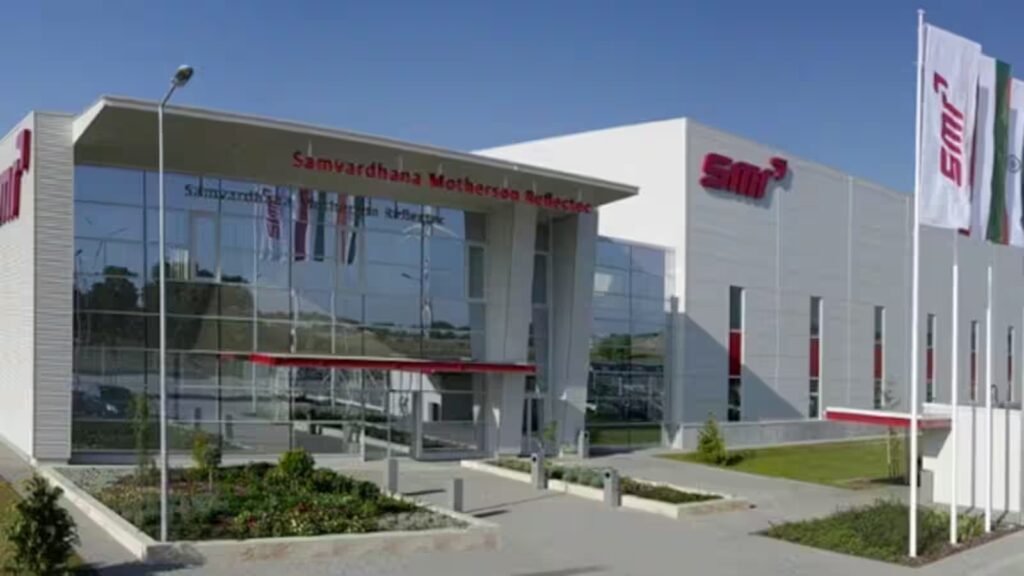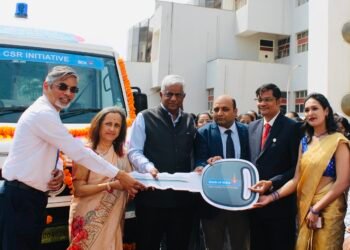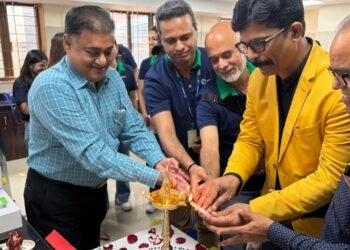NEW DELHI (India CSR): In the bustling factories of Noida or the sun-baked fields of Gujarat, where dreams of skilled jobs and cleaner air take root, Samvardhana Motherson International Limited (SAMIL) isn’t just building automotive parts—it’s forging futures. For a young mechanic in Chennai learning EV wiring or a farmer in Rajkot reclaiming water-scarce land, SAMIL represents more than a corporate name; it’s a promise of opportunity amid rapid industrialization. As the global auto components leader closed FY 2024–25 on March 31, 2025, with record revenues soaring 25% to Rs 98,690 crore, the company’s CSR report revealed a nuanced story: an unspent Rs 9.16 crore from its Rs 18.80 crore obligation. Far from a lapse, this amount—transferred to a dedicated account on April 15, 2025—fuels multi-year projects, embodying SAMIL’s ethos of “long-term thinking creates lasting value.” Rooted in a Rs 1,000 startup in 1975, SAMIL’s journey underscores how unspent funds can be the seed of sustainable change, aligning with India’s push for equitable growth and the company’s net-zero ambitions by 2040.
Determining the CSR Obligation for FY25
SAMIL’s Corporate Social Responsibility (CSR) mandate stems from Section 135 of the Companies Act, 2013, requiring 2% of average net profits over three prior years for social initiatives. In FY 2024–25, the standalone average net profit tallied Rs 940.13 crore, yielding a Rs 18.80 crore obligation. This figure mirrors SAMIL’s stellar performance: consolidated PAT jumped 80.85% to Rs 3,019.57 crore, driven by EV component demand and expansions in Europe and North America. Yet, for SAMIL—operating 300+ facilities across 44 countries—CSR isn’t checkbox compliance. It’s woven into the Motherson Chakra, a value framework blending ESG with business ops. As revenues hit $11.8 billion, the obligation reflects a company scaling responsibly, prioritizing areas like environmental sustainability and livelihood enhancement under Schedule VII of CSR Rules.

The Unspent Amount: Rs 9.16 Crores in Context
Against the Rs 18.80 crore target, SAMIL spent Rs 9.63 crore in FY 2024–25, leaving Rs 9.16 crore unspent—earmarked for ongoing projects. This expenditure broke down as Rs 9.70 crore on non-asset activities (including Rs 9.50 crore to Swarn Lata Motherson Trust for implementation and Rs 20 lakh for education) plus Rs 17.44 lakh on impact assessments by KPMG. No administrative overheads were incurred, maximizing ground-level flow.
This unspent sum isn’t idle; it’s strategic. In a year of 25% revenue growth to Rs 98,690 crore and EBITDA up 46% to Rs 9,325 crore, SAMIL views it as investment in continuity. The total allocation for ongoing initiatives reached Rs 18.62 crore, focusing on scalable programs. KPMG’s audits confirmed efficacy, with beneficiary feedback showing 85% satisfaction in skill programs. This approach counters short-termism, ensuring funds yield compounding returns—like a 40% income boost for trained youth—amid India’s 7.2% GDP growth in 2025.
Transfer to Unspent CSR Account
Regulatory rigor defines SAMIL’s response: the Rs 9.16 crore was transferred to the Unspent CSR Account within 30 days of FY-end, per Section 135(6). This move safeguards funds for approved multi-year projects, preventing diversion. SAMIL’s CSR Committee—chaired by Vivek Chaand Sehgal—oversaw two meetings in FY25, approving disbursals with board sign-off. The Vice President Finance certified utilization, emphasizing transparency.
This transfer highlights SAMIL’s maturity: unlike one-off spends, it supports phased execution. For instance, unspent funds from FY23-24 (Rs 9.79 crore transferred) saw Rs 8.96 crore deployed in FY25, leaving just Rs 82.86 lakh. Such prudence aligns with global standards, earning SAMIL spots on the Dow Jones Sustainability Index for three years running. In 2025, as EV sales hit 1.5 million units in India, SAMIL’s unspent strategy positions it to skill workers for green mobility, bridging a projected 10 million job gap by 2030.
ALSO READ | Samvardhana Motherson International Allocates Rs 9.63 Crore for CSR Initiatives in FY 2025
Leveraging Previous Year’s Unspent Funds
SAMIL’s track record shines in utilizing legacy funds. The FY23-24 unspent Rs 9.79 crore fueled FY25 spends, advancing projects like the Skill Development Centre (SDC) in Noida, which trained 1,132 youth in automotive tech, and Experiential Skill Development (ESD) programs reaching 1,252 participants. These efforts, 75% women-led in some cohorts, boast 70% job placement rates, per KPMG. Residual Rs 82.86 lakh rolls forward, ensuring zero waste.
This cycle exemplifies SAMIL’s QCDDMSES philosophy—Quality, Cost, Delivery, Manufacturing, Sales, Engineering, Sustainability—where past commitments amplify current impact. In FY25, amid a 12% YoY revenue rise to Rs 92,000 crore (per analyst reports), such recycling of funds supported 2,500+ indirect beneficiaries, from slum dwellers to tribal artisans, fostering inclusive growth in line with UN SDGs 4 (education) and 8 (decent work).
Governance and Impact Assessment
Robust oversight anchors SAMIL’s CSR. The committee, with independent directors, ensures alignment with ESG goals, including Scope 3 emissions tracking (9.91 million tCO2e in FY25, 90% of total). KPMG’s assessments of three completed projects revealed 35% well-being gains and 25% environmental metrics improvements, like reduced water use in Rajkot.
Transparency is non-negotiable: GRI-compliant reporting in the Global Citizenship Report details stories, such as ESD alumna Priya, now earning 50% more assembling EV batteries. Employee volunteering—1,500 staff logging 10,000 hours—adds heart, from afforestation drives to literacy camps. Chairman Laksh Vaaman Sehgal’s 2025 note: “Humility and purpose drive us,” echoes this, as SAMIL achieves 92% customer satisfaction via sustainable sourcing.
Key Projects Powered by Unspent Funds
Unspent allocations breathe life into flagships. The Rs 8 crore Livelihood Enhancement in Urapakkam, Chennai, spent Rs 2.85 crore in FY25 (Rs 5.16 crore pending), powers SDC and ESD, skilling for auto’s $500 billion Indian market by 2030. Beneficiaries like 300 Rajasthan women blend crafts with tech, boosting incomes 40%.
The Rs 1 crore Rajkot eco-project, with Rs 25 lakh spent (Rs 75 lakh unspent), planted 5,000 saplings and conserved water for 2,500 households, cutting 150 tCO2e. Part of Project S.O.R.T. (phases in Delhi NCR, Mumbai, Rajkot), it recycles trash into resources, aligning with circular economy goals. These, under Schedule VII, ensure ecological balance, vital as India targets 50% renewable energy by 2030.
Looking Ahead: CSR Integrated with Sustainability Ambitions
SAMIL’s Rs 9.16 crore unspent isn’t a pause—it’s momentum. As Vision 2025 concludes, Vision 2030 eyes 20 new green plants and $83.9 billion order book. CSR integrates with net-zero by 2040: 20% Scope 1/2 cuts in FY25 via 150 GWh renewables, 85% waste recycling saving 200,000 tonnes.
With market cap at Rs 1,09,231 crore by June 2025, SAMIL targets 10,000 skilled lives yearly and 50,000 tCO2 sequestered. In a world eyeing ESG, SAMIL proves unspent funds fuel legacy: from Rs 1,000 origins to global leader, turning obligations into opportunities for resilient India.
(India CSR)





















